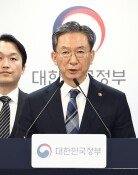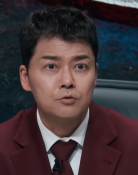[Editorial] President Cites German Coalition, Compares it to Korea
[Editorial] President Cites German Coalition, Compares it to Korea
Posted October. 08, 2005 07:57,
Two days ago, Cheong Wa Dae sent a long e-mail entitled Political analysis before and after the German general elections, to about 38,000 people, including lawmakers in the ruling and opposition parties, professors and journalists. The e-mail was a report written by Lee Soo-hyuk, ambassador to Germany, who predicted that the countrys conservative alliance and leftwing parties will make a grand coalition. Such e-mail politics by Cheong Wa Dae demonstrates that President Roh Moo-hyun is still obsessed with the notion of a coalition.
Prior to that, Cheong Wa Dae reportedly instructed ambassadors to each country to submit a report about the politics of countries with well-functioning coalitions. President Roh reportedly said after reading Lees report, Impressive. We need to compare it with Koreas situation and think it over. He also requested sending the report to figures in various sectors. If Cheong Wa Dae instructed missions overseas to submit reports that fit the purpose of shaping a political structure that the president pursues and if the ambassadors followed the instruction, it is questionable whether that is a pursuit of national interest or placing the need of the administration first. Worse yet, a majority of Korea people are against a coalition.
Moreover, a German coalition cannot serve as a model for Korean politics. A German coalition is the product of a time-honored political culture of the country. Its fair to call the countrys political history a history of coalition, in which a grand coalition and a small coalition were repeated under the parliamentary government. Also, policy solidarity, a basic precondition for coalition, is routine in the country. In this regard, it is difficult to say that the fact that 70 percent of German people support a grand coalition has decisive implications for Korea.
President Roh said, I believe the ruling Uri Party and the Grand National Party are not very different in terms of policy. However, he must be well aware that the ruling camp and the GNP have been at odds over every policy. It is difficult to find common ground for policy solidarity over various issues, including not only the abolition of the national security law and education policy but also the perspective of modern and recent Korean history. The reason why 60 to 70 percent of the public is opposed to a coalition is that they are worried that a reckless combining of the two camps would only fuel confusion in state affairs.
Under these circumstances, however, it makes little sense that President Roh is occupied with a coalition which already proved to be failed political planning, going so far as mobilizing ambassadors who are supposed to contribute to national interest from other countries. In todays situation, the president does not have the luxury of being impressed by a report on German coalition, a nation whose situation is totally different from Korea, and instructing to send it to tens of thousands of people.







